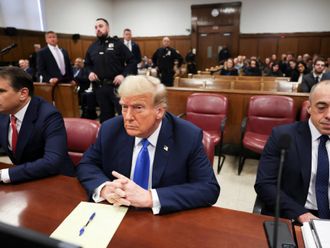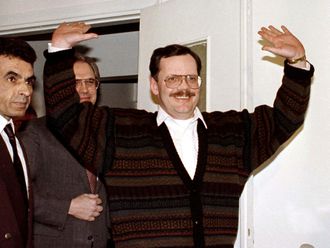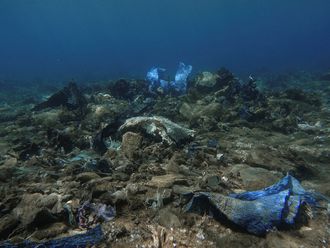Buenos Aires: Argentina’s new pro-market president-elect Mauricio Macri on Monday promised deep change in Latin America’s third-biggest economy and urged unity after his narrow election win laid bare the country’s divisions.
Macri, 56, the favoured candidate of big businesses and foreign investors, beat his leftist rival Daniel Scioli by less than three percentage points in Sunday’s vote, ending years of rule by the populist Peronist movement.
In his first news conference as president-elect, he vowed to get straight to work on an economic action plan to tackle slowing growth and soaring inflation.
“We are going to work actively to form an economic cabinet as soon as possible,” said the grey-haired former Boca Juniors football executive, looking tired after late night celebrations with supporters.
“We need to know what state the public finances are in, to know where to start on December 10,” when he will take over from President Cristina Kirchner.
Breaking with 12 years of leftist rule, Macri has vowed to ease foreign trade and lift dollar restrictions.
His rivals said that would trigger a sharp devaluation of the peso, weakening ordinary Argentines’ buying power.
Macri vowed to “govern for absolutely everyone” and “build bridges” with rivals, as analysts warned he may struggle to get his liberal economic reforms past hostile lawmakers.
“I have full confidence that this change of era will be a profound one,” he added.
Macri’s victory marks a sharp political shift in a country largely weary after 12 years under Kirchner and her predecessor and late husband, Nestor Kirchner.
It breaks the grip of Peronism, the broad populist movement that has dominated Argentine politics for much of the past 70 years.
Official results gave Macri 51.4 per cent of the votes and 48.6 per cent for Scioli, with 99 per cent of ballots counted.
Scioli conceded defeat but others in the Peronist camp were more defiant.
Kirchner’s chief adviser Anibal Fernandez called it “a draw.”
Newspaper Pagina 12’s headline ran: “One president, two countries.”
The Buenos Aires stock exchange had risen in the weeks ahead of the vote anticipating Macri’s victory, but closed more than five per cent lower on Monday.
Analysts consulted by AFP said investors may have been spooked by the political uncertainty implied by the narrow result, but profit-taking and recent fresh currency restrictions were also factors.
Macri has promised to negotiate with foreign creditors who have sued Argentina in the US courts for unpaid debts.
He is also expected to have warmer relations with countries such as the United States and Britain.
Kirchner clashed with London in the territorial dispute over the Falkland Islands, known in Spanish as Las Malvinas.
US Secretary of State John Kerry said the United States looked forward to working with Macri “to promote regional security and prosperity, and to enhance human development and human rights.”
Foreign leaders including Russia’s Vladimir Putin and Dilma Rousseff of Brazil congratulated Macri, their offices said.
Macri said his first trip abroad would be to Argentina’s giant northern neighbour to meet Rousseff, a centre-left leader who supported his rival in the election.
“We want to build good relations with all of Latin America and with the world,” he said.
However, the president-elect targeted Venezuela’s leftist leaders, whom he accuses of persecuting the political opposition.
Macri said he would propose to fellow members of the Mercosur South American trade bloc that they suspend Venezuela from the group.
Venezuela holds legislative elections on December 6, which polls indicate the right-wing opposition could win.
Political scientist Rosendo Fraga told AFP that could herald “a political shift not only in Argentina but in the region.”












